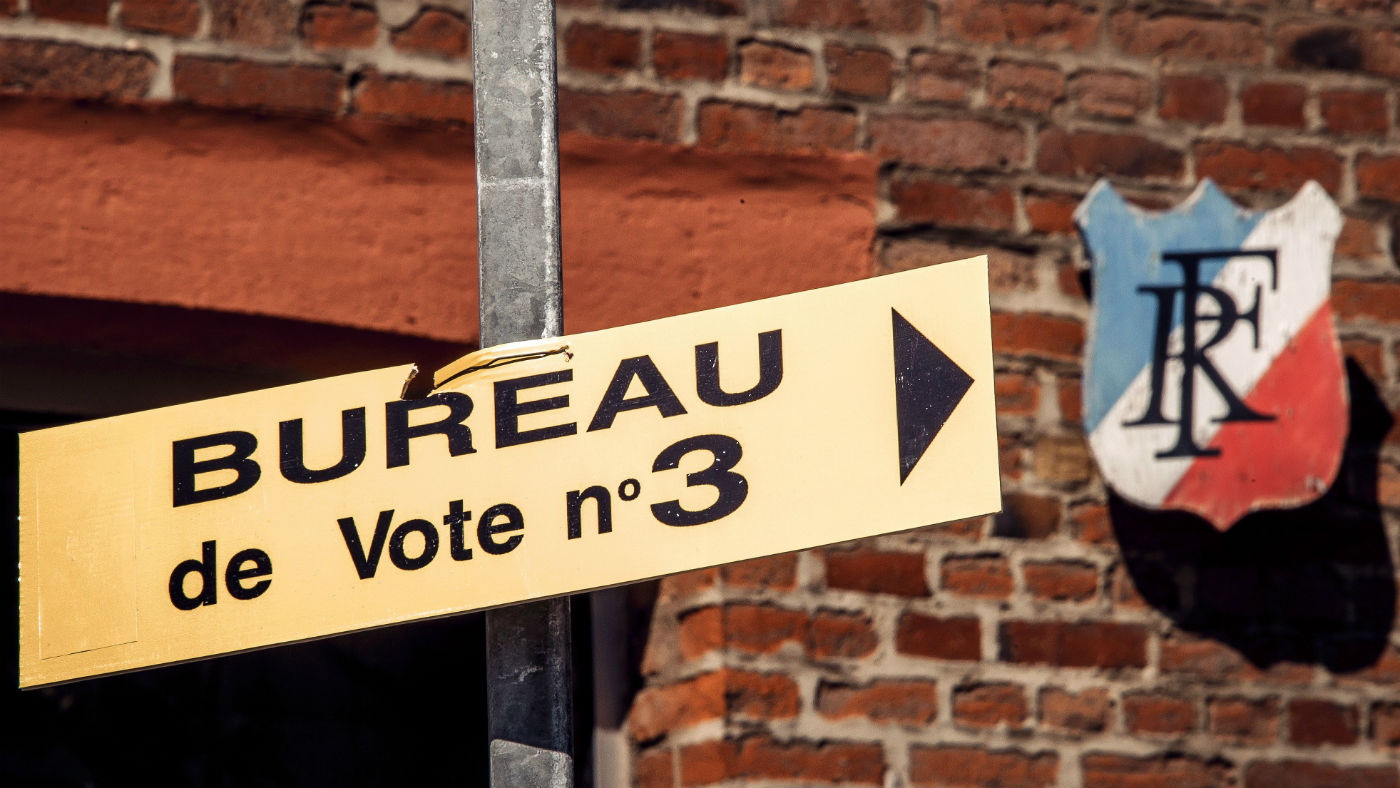Front National name change ‘political suicide’, says founder
Radical move may isolate Marine Le Pen from grass roots of far-right French party

A free daily email with the biggest news stories of the day – and the best features from TheWeek.com
You are now subscribed
Your newsletter sign-up was successful
The founder and former leader of France’s far-right Front National has said plans to change its name amount to political suicide.
Jean-Marine Le Pen warned his daughter, who now leads the party, that she risks cutting herself off from the party’s grass roots with her radical rebranding plan.
Marine Le Pen, who dropped the Front National brand during her failed presidential bid last year, will ask members to agree to replace the name, which insiders say puts off potential voters and is an obstacle to alliances with other groups.
The Week
Escape your echo chamber. Get the facts behind the news, plus analysis from multiple perspectives.

Sign up for The Week's Free Newsletters
From our morning news briefing to a weekly Good News Newsletter, get the best of The Week delivered directly to your inbox.
From our morning news briefing to a weekly Good News Newsletter, get the best of The Week delivered directly to your inbox.
While she was soundly beaten by Emmanuel Macron in the second-round run-off, Le Pen still shocked many in France by winning a third of total votes, one of the biggest electoral successes by a far-right party in post-war Europe.
Speaking to Reuters, the elder Le Pen, who led the FN for nearly four decades and lost a presidential run-off against Jacques Chirac in 2002, said: “This initiative is suicidal. That would be so for a company, and that is obviously also the case in politics.”
“It takes years, decades, to build a credible political name,” he added. “Wanting to change it is ... inexplicable.”
Le Pen father and daughter “have been at odds since she kicked him out of the party in 2015 in a bid to distance herself from his frequent inflammatory remarks, which put off a large part of the electorate”.
A free daily email with the biggest news stories of the day – and the best features from TheWeek.com
Since the election she has dropped her unpopular anti-euro stance and refocused the party on migration and security. Now it appears she wants to go one step further and consign some of her father’s divisive legacy to history.
-
 Local elections 2026: where are they and who is expected to win?
Local elections 2026: where are they and who is expected to win?The Explainer Labour is braced for heavy losses and U-turn on postponing some council elections hasn’t helped the party’s prospects
-
 6 of the world’s most accessible destinations
6 of the world’s most accessible destinationsThe Week Recommends Experience all of Berlin, Singapore and Sydney
-
 How the FCC’s ‘equal time’ rule works
How the FCC’s ‘equal time’ rule worksIn the Spotlight The law is at the heart of the Colbert-CBS conflict
-
 Greenland’s capital becomes ground zero for the country’s diplomatic straits
Greenland’s capital becomes ground zero for the country’s diplomatic straitsIN THE SPOTLIGHT A flurry of new consular activity in Nuuk shows how important Greenland has become to Europeans’ anxiety about American imperialism
-
 Epstein files topple law CEO, roil UK government
Epstein files topple law CEO, roil UK governmentSpeed Read Peter Mandelson, Britain’s former ambassador to the US, is caught up in the scandal
-
 Iran and US prepare to meet after skirmishes
Iran and US prepare to meet after skirmishesSpeed Read The incident comes amid heightened tensions in the Middle East
-
 Israel retrieves final hostage’s body from Gaza
Israel retrieves final hostage’s body from GazaSpeed Read The 24-year-old police officer was killed during the initial Hamas attack
-
 China’s Xi targets top general in growing purge
China’s Xi targets top general in growing purgeSpeed Read Zhang Youxia is being investigated over ‘grave violations’ of the law
-
 Panama and Canada are negotiating over a crucial copper mine
Panama and Canada are negotiating over a crucial copper mineIn the Spotlight Panama is set to make a final decision on the mine this summer
-
 Why Greenland’s natural resources are nearly impossible to mine
Why Greenland’s natural resources are nearly impossible to mineThe Explainer The country’s natural landscape makes the task extremely difficult
-
 Iran cuts internet as protests escalate
Iran cuts internet as protests escalateSpeed Reada Government buildings across the country have been set on fire